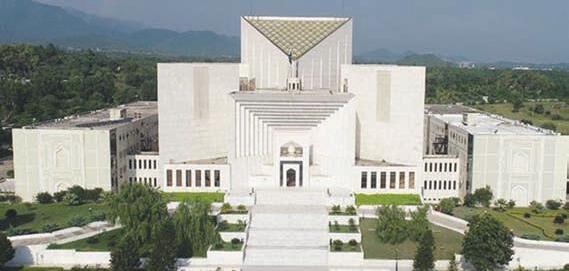
2 minute read
Civilians under militar y laws
Army Act of 1952, Civilians, however, can only be prosecuted by federal government order According to the Army Act, the rules of evidence in proceedings before courts martial are the same as those observed by regular civilian criminal courts In addition it is undisputed that according to Article 10A of the 1973 Constitution every person has a fundamental right to a fair trial
There are two issues and defenses in favor of applying military law to civilians According to one side of the argument, using military courts to try civilians undermines the civil judicial system raises concerns about due process transparency and accountability and may result in human rights violations Supporters assert that in order to successfully and swiftly prosecute offenses connected to terrorism while upholding national security, military courts must be used For the first time, the Apex Court carefully examined the legality and constitutionality of the “Brig (Retd) F B Ali’s case PLD 1975 SC 506,” concluding that a civilian who is ordinarily subject to the country s ordinary law may be tried by a Military Court
Advertisement
MI L I TA RY justice is a distinct legal system that applies to members of armed forces and in some cases civilians Throughout numerous countries and times including the First and Second World Wars, military courts have been used to adjudicate civilians for a very long time Examples include the Ancient and Mediaeval Periods Post-Colonial Periods and Contemporary Periods Pakistan Argentina Israel Turkey Thailand China Indonesia Kuwait Sri Lanka Mali Lebanon Malaysia Russia Iran India Cuba Djibouti Eritrea Kenya, Bahrain, Chile, Peru, Mexico, Philippines, Syria, Yemen, Bangladesh, Iraq, and Saudi Arabia are currently among the countries where civilians are occasionally and in special circumstances subject to military laws However the real legal frameworks and processes could be very different
The Pakistan Army Act of 1952 the Pakistan Air Force Act of 1953 and the Pakistan Navy Ordinance of 1961 were the first pieces of legislation to create military tribunals for the purpose of punishing military personnel in Pakistan However, there are several provisions and circumstances when the Military Act also applies to civilians The first modification to Section 2[(d) of the Pakistan Army Act was made by the Defence Services Laws Amendment Ordinance 1967 (3 of 1967) whereby the persons not otherwise subject to this Act came within the ambit of military laws being civilians and accused of seducing or attempting to seduce any person subject to this Act from his duty or allegiance to Government or having committed concerning any work of defense arsenal naval military or air force establishment or station ship or aircraft or otherwise about the naval, military or air force affairs of Pakistan, an offense under the Official Secrets Act, 1923 as well Under the
In the aforementioned decision the Supreme Court thoroughly assessed the validity of Ordinance No 3 of 1967 from a variety of angles, including the touchstone of basic rights guaranteed by our Constitution, namely the Constitution of the Islamic Republic of Pakistan, 1973
In the case of Mushtaq Ahmad V/S Secretary Ministry of Defence PLD 2007 SC 405 the Apex Court upheld the law established in the F B Ali s case holding that if a civilian is found guilty of seducing or attempting to seduce a member of the Pakistani Military Force from his allegiance to the government, he will not be punished under
In the aforementioned decision, the Supreme Court thoroughly assessed the validity of Ordinance No. 3 of 1967 from a variety of angles, including the touchstone of basic rights guaranteed by our Constitution, namely the Constitution of the Islamic Republic of Pakistan, 1973







